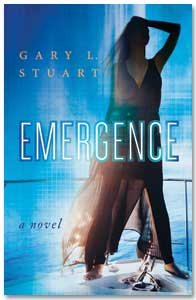The prompt for this blog is the announcement of former president Donald J. Trump’s indictment, arraignment, plea, and prosecution. It’s not about his defense; that will slither out over the next year. It’s about whether the thirty-four felony counts are a valid case or a witch hunt. The defense is unlikely to win on the merits but has a chance at a mistrial based on political fever. The narrow focus here is the ethics of prosecuting a criminal defendant, who once held our highest elected office. It’s a challenge to write about a man whose ethics are as thin as his legal charge that the 2022 election was stolen from him. But this blog is not about the defendant. It’s about the ethics that control and define the prosecutorial team representing the State of New York.
The American Bar Association has a model rule in place proscribing ethical parameters exercised by prosecutors in criminal cases.[1] It is lengthy for good reason. Without legal ethics, there can be no justice. This is not Russia. American prosecutors in both state and federal criminal cases are ethically mandated to follow these six ethical rules.
- The prosecutor is an administrator of justice, a zealous advocate, and an officer of the court. The prosecutor’s office should exercise sound discretion and independent judgment in the performance of the prosecution function.
- The primary duty of the prosecutor is to seek justice within the bounds of the law, not merely to convict. The prosecutor serves the public interest and should act with integrity and balanced judgment to increase public safety both by pursuing appropriate criminal charges of appropriate severity and by exercising discretion to not pursue criminal charges in appropriate circumstances. The prosecutor should seek to protect the innocent and convict the guilty, consider the interests of victims and witnesses, and respect the constitutional and legal rights of all persons, including suspects and defendants.
- The prosecutor should know and abide by the standards of professional conduct as expressed in applicable law and ethical codes and opinions in the applicable jurisdiction. The prosecutor should avoid an appearance of impropriety in performing the prosecution function. A prosecutor should seek out, and the prosecutor’s office should provide, supervisory advice and ethical guidance when the proper course of prosecutorial conduct seems unclear. A prosecutor who disagrees with a governing ethical rule should seek its change if appropriate, and directly challenge it if necessary, but should comply with it unless relieved by court order.
- The prosecutor should make use of ethical guidance offered by existing organizations and should seek to establish and make use of an ethics advisory group akin to that described in Defense Function Standard 4-1.11.
- The prosecutor should be knowledgeable about, consider, and where appropriate develop or assist in developing alternatives to prosecution or conviction that may be applicable in individual cases or classes of cases. The prosecutor’s office should be available to assist community efforts in addressing problems that lead to, or result from, criminal activity or perceived flaws in the criminal justice system.
- The prosecutor is not merely a case processor but also a problem-solver responsible for considering broad goals of the criminal justice system. The prosecutor should seek to reform and improve the administration of criminal justice, and when inadequacies or injustices in the substantive or procedural law come to the prosecutor’s attention, the prosecutor should stimulate and support efforts for remedial action. The prosecutor should provide service to the community, including involvement in public service and Bar activities, public education, community service activities, and Bar leadership positions. A prosecutorial office should support such activities, and the office’s budget should include funding and paid release time for such activities.
In New York, all criminal prosecutions are subject to a special code of ethics called “The Right Thing.” It is a well-known, scrupulously followed series of guidelines for New York prosecutors. Its breadth and reach cover every important legal precedent, legal ethic, and professional approach to criminal prosecutions. It has eight long sections that, as a whole, cover all ethical problems, conundrums, and dilemmas in a state and a city deeply embedded with politics and politicians; (1) Unethical Conduct: Rules of Fairness and Ethical Conduct. (2) Rules of Professional Conduct. (3) Brady and Giglio: The Constitutional Right to a Fair Trial. (4) Statutory Discovery Obligations. (5) Discovery Concerning Prosecution Witnesses. (6) Political Activity by Prosecutors.
For reference, the Brady Doctrine is a pretrial discovery rule established by the United States Supreme Court in Brady v. Maryland in 1963. It requires prosecutors to turn over all exculpatory evidence to the defendant in a criminal case. Exculpatory evidence is evidence that might exonerate the defendant. The Giglio Doctrine is a continuation of the Brady Doctrine. It stems from a 1972 United States Supreme Court. In Giglio, the Court went further and held that all impeachment evidence falls under the Brady holding. This means that the prosecution must disclose all information or material that may impeach the credibility of prosecution witnesses.
In every state, prosecutors are held to an especially high standard in charging and trying criminal cases. “The prosecutor is the representative not of an ordinary party to a controversy, but of sovereignty . . . whose interest, therefore, in a criminal prosecution is not that it shall win a case, but that justice shall be done. As such, he is in a peculiar and very definite sense the servant of the law, the twofold aim of which is that guilt shall not escape, or innocence suffer. He may prosecute with earnestness and vigor – indeed, he should do so. But, while he may strike hard blows, he is not at liberty to strike foul ones. It is as much his duty to refrain from improper methods calculated to produce a wrongful conviction as it is to use every legitimate means to bring about a just one.”[2]
While this is not the case in most states, New York has a specific code dealing with political activity by prosecutors. “This Code recognizes the civil rights of a prosecutor, as an individual citizen, to vote, join a political party, contribute money to political organizations, attend political events, sign political petitions, and participate in community and civic organizations that have no partisan purpose. However, to avoid compromising the integrity of their office and the appearance of conflicts with their professional responsibilities, district attorneys and their assistants are forbidden to be members or officers of any organization or group having a political purpose. Prosecutors generally may not speak at political functions, publicize their attendance at such functions, or act in a manner that could be interpreted as lending the prestige and weight of their office to a political party or function.”
The politics and the ethics of Trump’s indictment are a merger of political need and criminal plead. The political consequences are vastly more important than the legal consequences will be. The New York Times reported that he would apply political pressure to prosecutors while revving up support for his campaign by portraying himself as a victim of Democratic persecution. “After Mr. Trump’s indictment, it has become impossible to tell where his legal defense ends, and his presidential campaign begins. The blurring of the lines between his White House bid and his mounting court battles is at the center of a high-stakes, norm-shattering bet from Mr. Trump: that he is capable of swaying public opinion to such a degree that he can simultaneously bolster his legal case and gin up enthusiasm — and campaign contributions — from his supporters.”[3]
Reuters.com reported four politically driven responses to the indictment. “Congressman Adam Schiff said, ‘A somber moment in the life of our country when it’s necessary to arraign a former president on criminal charges. As the case falls to the DA to prove, we must recognize what is most important: Even the most powerful are held to account, and that nobody is above the law.’ Congressman Jamaal Bowman said, ‘Take responsibility, hold yourself accountable, and go away.’ Texas Attorney General Ken Paxton said, “I stand w/Trump & will always fight against those who want to destroy our Republic.” Senator Marco Rubio went on to call the charges against Trump absurd. “You’re talking about a misdemeanor — if proven — a misdemeanor that had a statute of limitations that expired,” Rubio continued. “So, this prosecutor has decided to link it to a federal charge — election law charge that the federal government decided not to pursue — and all of it built on the testimony of a convicted liar.”[4]
Politico.com reported, “The Trump Indictment Reveals More About Our Politics Than It Does About the Ex-President. . . Modern presidents are such powerful and ubiquitous figures, so synonymous with national identity, that the idea of holding them to account has only been seen as destabilizing. The Clinton impeachment was widely viewed as a political stunt, and any serious questions were obscured by national satisfaction with the economy and suspicion of the impeachment process. Upon leaving office, Clinton entered into a plea bargain to avoid indictment for lying under oath. Nixon and Watergate were taken much more seriously, but Ford chose to pardon his predecessor upon taking office, declaring that it was more important to move on than to spend more time facing up to what the office of the presidency could be, and, in fact, had become.”[5]
From an ethical perspective, what is at play in the indictment of a former president is a genuine ethical dilemma—a situation in which a difficult choice must be made between two courses of action, either of which entails transgressing a moral principle. Trump can neither admit guilt to the crime nor defend it on its merits. New York District Attorney Alvin Bragg is likewise burdened. If he prosecutes the case to a guilty verdict, he will be targeted, bedeviled, and berated by the MAGA multitude in ways no other American prosecutor has ever been treated, and life will be on the line. If he loses the case he will disappoint most of New York and every blue state, but his life might still be on the line in MEGA world.
[1] https://www.americanbar.org/groups/criminal_justice/standards/ProsecutionFunctionFourthEdition/
[2] Berger v United States, 295 US 78, (1935).
[3] https://www.nytimes.com/2023/04/07/us/politics/trump-campaign-indictment.html
[4] https://www.reuters.com/world/us/reactions-former-president-donald-trump-arraigned-new-york-city-2023-04-04/.
[5] https://www.politico.com/news/magazine/2023/04/04/trump-indictment-politics-revelation-00090247

I am an author and a part-time lawyer with a focus on ethics and professional discipline. I teach creative writing and ethics to law students at Arizona State University. Read my bio.
If you have an important story you want told, you can commission me to write it for you. Learn how.






 I am an author and a part-time lawyer with a focus on ethics and professional discipline. I teach creative writing and ethics to law students at Arizona State University.
I am an author and a part-time lawyer with a focus on ethics and professional discipline. I teach creative writing and ethics to law students at Arizona State University.  My latest novel is Emergence, the sequel to Let’s Disappear.
My latest novel is Emergence, the sequel to Let’s Disappear.  If you have an important story you want told, you can commission me to write it for you.
If you have an important story you want told, you can commission me to write it for you.